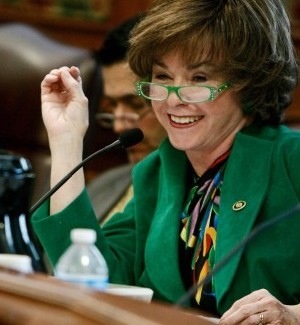
ST. LOUIS, Mo. — “On June 27, U.S. Secretary of Education Arne Duncan visited St. Louis with U.S. Secretary of Health and Human Services Kathleen Sebelius to address the Education Commission of the States’ National Forum on Education Policy. They discussed education policy and presented the Obama Administration’s early learning initiative. That program will unwisely be funded by a $.94 cent increase in the federal excise tax on cigarettes. The tax increase is part of President Obama’s budget proposal and would bring the federal excise tax levied on cigarettes to $1.95 per pack. While I would like to decrease second-hand smoke, Missourians have spoken loudly and clearly on this issue.
Show-Me State voters are quite familiar with cigarette taxes, as there have been three ballot initiatives to raise the state excise tax on cigarettes in the past decade. In 2002, 2006, and 2012 Missourians voted down proposals to increase excise taxes by $.55, $.80, and $.73, respectively. The will of the people is clear. Missourians have no appetite for the creation of new taxes to fund broad government spending programs. Despite costly campaigns by proponents of the tax increases, the idea of taxing the few to benefit the many simply does not resonate. The anti-tax sentiment in the Show-Me state has in fact grown, evidenced by the fact that the most recent ballot initiative was defeated by more votes than 2002’s effort.
Furthermore, there are many instances at the local, state, and federal levels of government in which cigarette taxes fall short of revenue projections. Increasing the price of cigarettes, or any consumer good, usually has the effect of decreasing demand for that good. This in turn leads to less tax revenue, jeopardizing the funding mechanism for whatever spending the tax increase was intended to finance. If revenue does not meet requisite levels, governments will then need to look for new taxes or spending cuts to make up for the shortfall. In 2009, the last time the federal government increased the excise tax on cigarettes, total state tax-paid sales declined 8.3 percent in the following fiscal year, compared to an average decline of 3.8 percent over the previous 10 years. The current proposed increase is larger than that of 2009, so revenue collections may decline by even more.
Also important to consider is the effect these tax increases have on retailers. As a former State Senator, I represented constituents at all levels of the business community, many of whom are also tobacco retailers. In this role, I was keenly aware of the relationship between tax increases and decreased in-store revenue. When cigarette excise taxes rise, adult tobacco consumers may begin to look for cheaper alternatives to traditional tobacco retail outlets. They can find inexpensive cigarettes online, in other states, or even on the black market. This in turn robs law-abiding retailers of a revenue stream they are heavily dependent on. Missourians have shown time and again that they do not support shortsighted tax increases that burden businesses and are unreliable sources of revenue. Our state’s voters voiced their opposition to these tax-and-spend policies just eight months ago, and I have no reason to believe their views have changed.”
– Jane Cunningham (former State Senator, R-Chesterfield)
